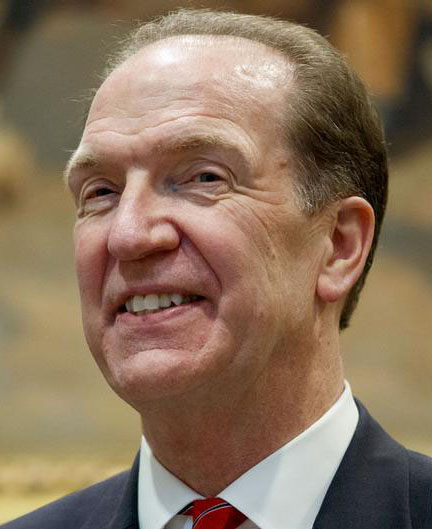As the sense of emergency and worsening crisis in poor countries arising out of the onslaught of the coronavirus pandemic becomes increasingly clear, World Bank Group President David Malpass has called for a refashioning of the arrangements governing the management of the debt burden of those countries in order to further accentuate an already critical situation.
“The urgency is clear. We need to avoid repeating the protracted debt restructuring processes that delayed past recoveries and created cycles of unsustainable debt,” Malpass told the November 16 meeting of the Executive Board of the World Food Programme.
In what amounted to a poignant and focussed address in the context of global circumstances, Malpass said that while the Bank welcomed the G20’s Debt Service Suspension Initiative (DSSI) which he said had provided “much-needed fiscal breathing room” for poor countries, “these initiatives provide only temporary debt relief, postponing payments but not reducing the ultimate debt burden.” It was against this backdrop, he disclosed, that the World Bank/IMF Development Committee had tasked the Bank and the Fund with proposing actions to address low-income countries’ unsustainable debt burdens. “… Increased transparency will be critical to better balance the interests of the people with the interests of those signing the debt and investment contracts,” Malpass said.
In a poignant presentation that addressed, for the most part, the need to implement measures to swiftly alleviate the COVID-19-related pressure on the most affected countries, Malpass declared that the sense of urgency had derived from the fact that the virus had had the effect of transforming our world “beyond anything we could have imagined.” It had, he said, dealt “an unprecedented setback to the global effort to end extreme poverty and boost shared prosperity,” bringing to a grinding halt “two decades of steady progress on poverty reduction.”
“COVID-19 has altered every aspect of commercial activity and trade, shrinking GDP, fuelling a debt crisis and triggering severe food crises. Sickness, food insecurity, job losses, and school closures are eroding human capital, leaving a loss in earnings that may last a lifetime,” Malpass told the gathering.
In an address that also contemplated further initiatives to help respond to the tailspin into which the pandemic has thrown every corner of the globe, Malpass said that the World Bank was already in the process of committing “a record US$160 billion over 15 months, including grants and concessional financing” to help alleviate the global crisis. He said that 40% of this amount had already been committed during the first six months and that up to US$12 billion of “fast track financing” is currently being made available “for the purchase of COVID-related health supplies, such as masks and emergency room equipment.”
Meanwhile, in seeking to allay fears already being expressed in poor countries that they could find themselves ‘standing in line’ to secure access to vaccinations created in developed countries, Malpass said that the Bank was already “working hard with countries to provide technical advice on vaccine procurement and effective distribution.”
And in a blunt assessment of the prospects for a swift post-Covid global recovery, Malpass said that the pandemic had had the effect of “changing our world beyond anything we could have imagined and is likely to leave a “lasting scar on the next generation, with the harshest impact on women, children and the vulnerable.” The circumstances, he declared, amounted to “an unprecedented global emergency that requires international cooperation at every level.”
Meanwhile, Malpass disclosed that the Bank’s household surveys had revealed that “large numbers of people are running out of food or reducing food consumption in order to adjust their spending to worsening circumstances.” It was for this reason, the Bank’s top official said, that the institution had been urging countries to keep trade open and food flowing across the world.








